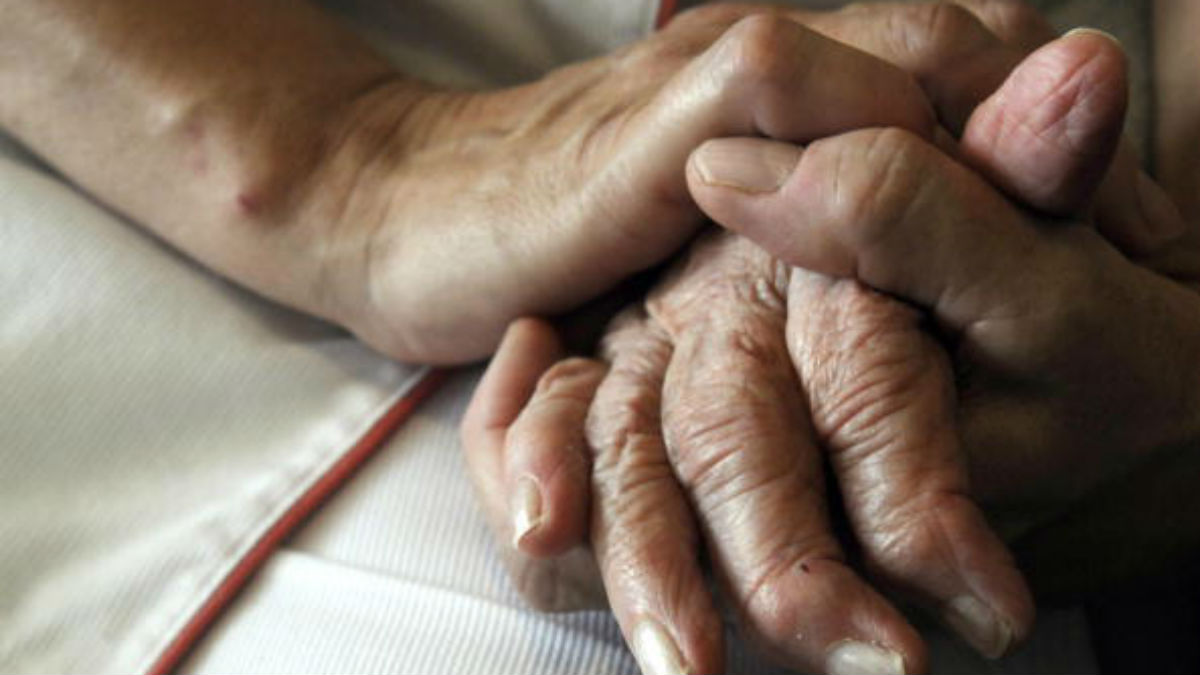Coronavirus: who are the ‘super-survivors’?
Centenarians part of a ‘special group’ who are more likely to survive coronavirus

A free daily email with the biggest news stories of the day – and the best features from TheWeek.com
You are now subscribed
Your newsletter sign-up was successful
People over the age of 100 are part of a “special group” whose biological make-up means that they are more likely to survive coronavirus, according to experts.
The Times reports that despite mortality data suggesting that people over the age of 70 are at greater risk of dying due to coronavirus, there is a “select group for whom this seems not to apply”.
This trend was demonstrated this week, when the NHS discharged 106-year-old Connie Titchen from a Birmingham hospital. Titchen is the oldest known person in Britain to have survived the disease.
The Week
Escape your echo chamber. Get the facts behind the news, plus analysis from multiple perspectives.

Sign up for The Week's Free Newsletters
From our morning news briefing to a weekly Good News Newsletter, get the best of The Week delivered directly to your inbox.
From our morning news briefing to a weekly Good News Newsletter, get the best of The Week delivered directly to your inbox.
But why are the over-100s surviving coronavirus – and what can we learn from them?
–––––––––––––––––––––––––––––––For a round-up of the most important stories from around the world – and a concise, refreshing and balanced take on the week’s news agenda – try The Week magazine. Start your trial subscription today–––––––––––––––––––––––––––––––
Why are older people surviving?
Older people surviving coronavirus is not necessarily unusual, with recent figures suggesting that the virus has a fatality rate of around 14.8% among sufferers aged 80 and up. This means that more than 85% of sufferers recover.
A free daily email with the biggest news stories of the day – and the best features from TheWeek.com
The Times reports that stories of people in their 90s and centenarians surviving the disease that has killed scores of young and healthy individuals “continue to emerge from Italy, the US, China and the Netherlands”.
Experts currently believe the survival of this small group of very old adults is likely to be because of the heterogeneity, or diverse characteristics, within each age group.
“This may give them a physical or psychological advantage over the majority of those in their age cohort,” The Times notes.
Sarah Harper, a professor of gerontology at Oxford University, said: “If we look at people who live to a very old age and make it over 105 years there is some indication that they are genetically or biologically different from the rest of the population.
“They have very little cancer, very little cardiovascular disease, very little diabetes. We do know that there is a special group. They are obviously exceptional for their age group. That does not make [their survival] less special – it is wonderful to see that these older adults have come through this illness and are now well.”
Last month Professor Chris Whitty, the country’s chief medical officer, sought to reassure the public that the elderly have a good chance of surviving Covid-19 if infected.
Whitty said that “even in the most vulnerable, oldest groups, in a very stressed health service…the great majority of people who caught this virus survived it”, reported The Telegraph.
“I think it’s easy to get a perception that if you’re older and you get this virus, you’re a goner. Absolutely not – the great majority of people will recover from this virus, even if they are in their 80s,” he added.
-
 How the FCC’s ‘equal time’ rule works
How the FCC’s ‘equal time’ rule worksIn the Spotlight The law is at the heart of the Colbert-CBS conflict
-
 What is the endgame in the DHS shutdown?
What is the endgame in the DHS shutdown?Today’s Big Question Democrats want to rein in ICE’s immigration crackdown
-
 ‘Poor time management isn’t just an inconvenience’
‘Poor time management isn’t just an inconvenience’Instant Opinion Opinion, comment and editorials of the day
-
 Epstein files topple law CEO, roil UK government
Epstein files topple law CEO, roil UK governmentSpeed Read Peter Mandelson, Britain’s former ambassador to the US, is caught up in the scandal
-
 Iran and US prepare to meet after skirmishes
Iran and US prepare to meet after skirmishesSpeed Read The incident comes amid heightened tensions in the Middle East
-
 Israel retrieves final hostage’s body from Gaza
Israel retrieves final hostage’s body from GazaSpeed Read The 24-year-old police officer was killed during the initial Hamas attack
-
 China’s Xi targets top general in growing purge
China’s Xi targets top general in growing purgeSpeed Read Zhang Youxia is being investigated over ‘grave violations’ of the law
-
 Panama and Canada are negotiating over a crucial copper mine
Panama and Canada are negotiating over a crucial copper mineIn the Spotlight Panama is set to make a final decision on the mine this summer
-
 Why Greenland’s natural resources are nearly impossible to mine
Why Greenland’s natural resources are nearly impossible to mineThe Explainer The country’s natural landscape makes the task extremely difficult
-
 Iran cuts internet as protests escalate
Iran cuts internet as protests escalateSpeed Reada Government buildings across the country have been set on fire
-
 US nabs ‘shadow’ tanker claimed by Russia
US nabs ‘shadow’ tanker claimed by RussiaSpeed Read The ship was one of two vessels seized by the US military